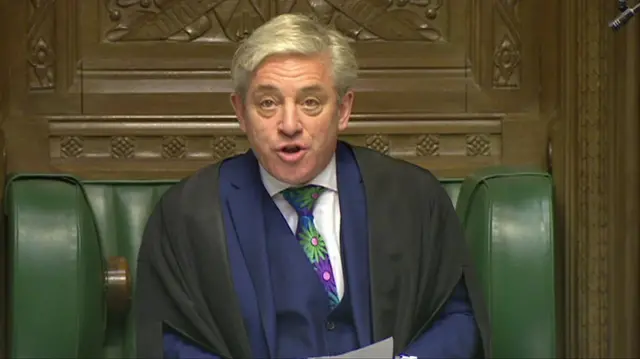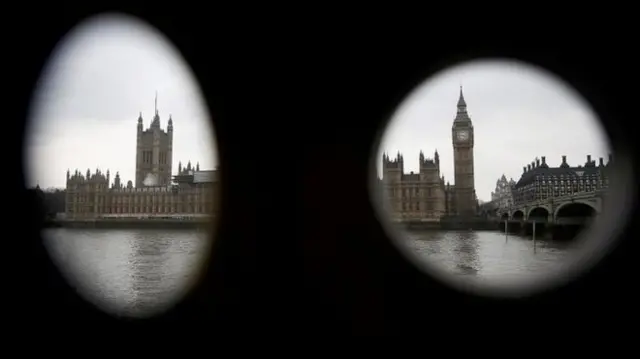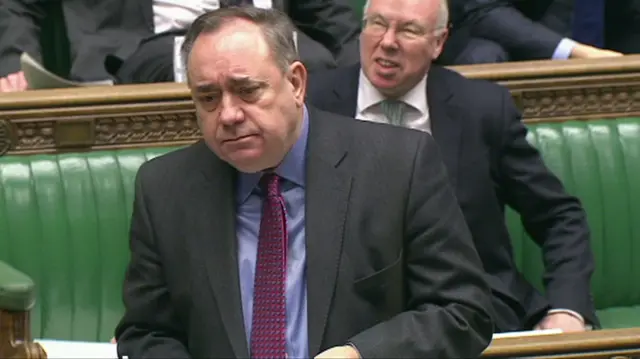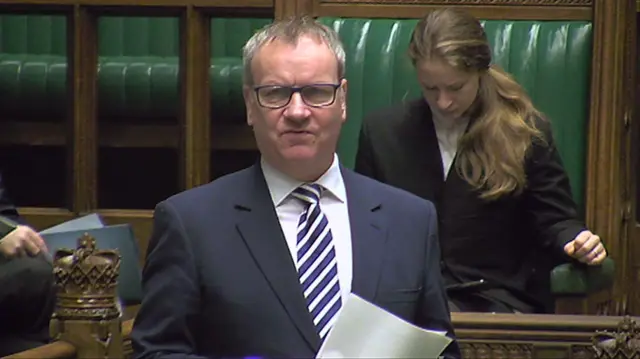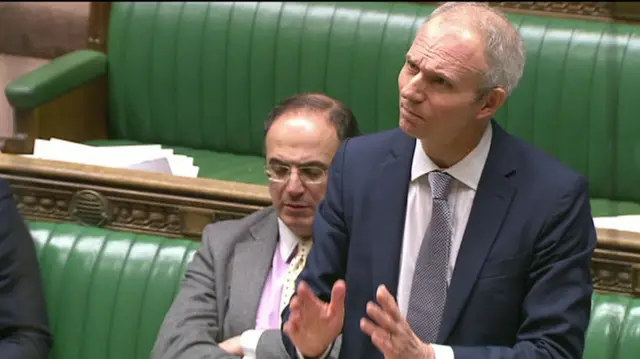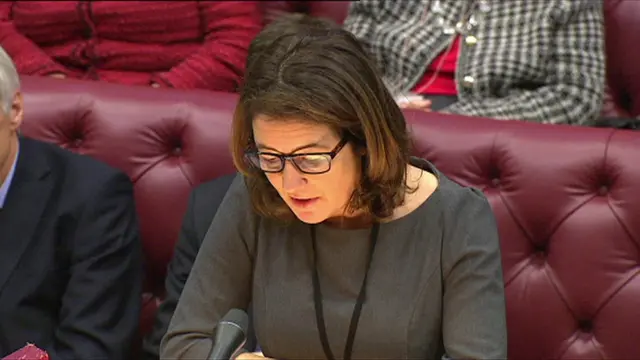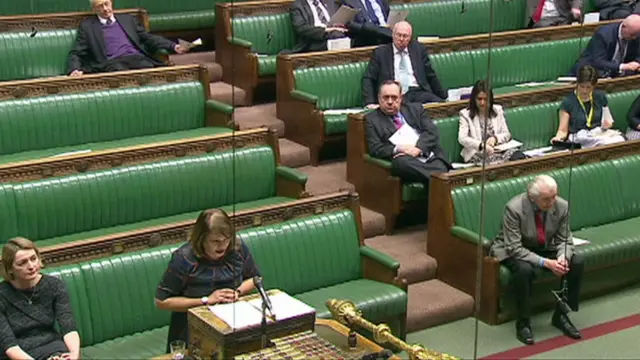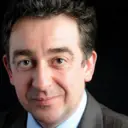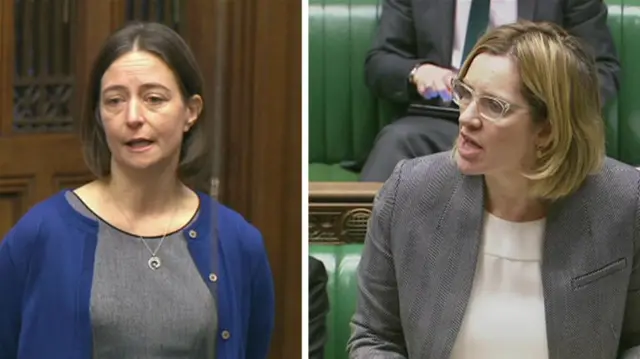Woad to Joy?published at 12:44 GMT 9 February 2017
Business Statement
 House of Commons
House of Commons
Parliament
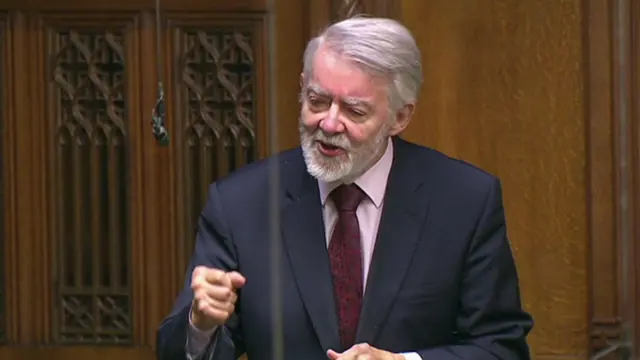
Labour's Paul Flynn praises the Speaker's "record as a trailblazer" and asks if he will consider allowing singing during voting divisions.
He says that the SNP's rendition of Ode to Joy was "the only bright spark" during the votes on the bill triggering Article 50.
